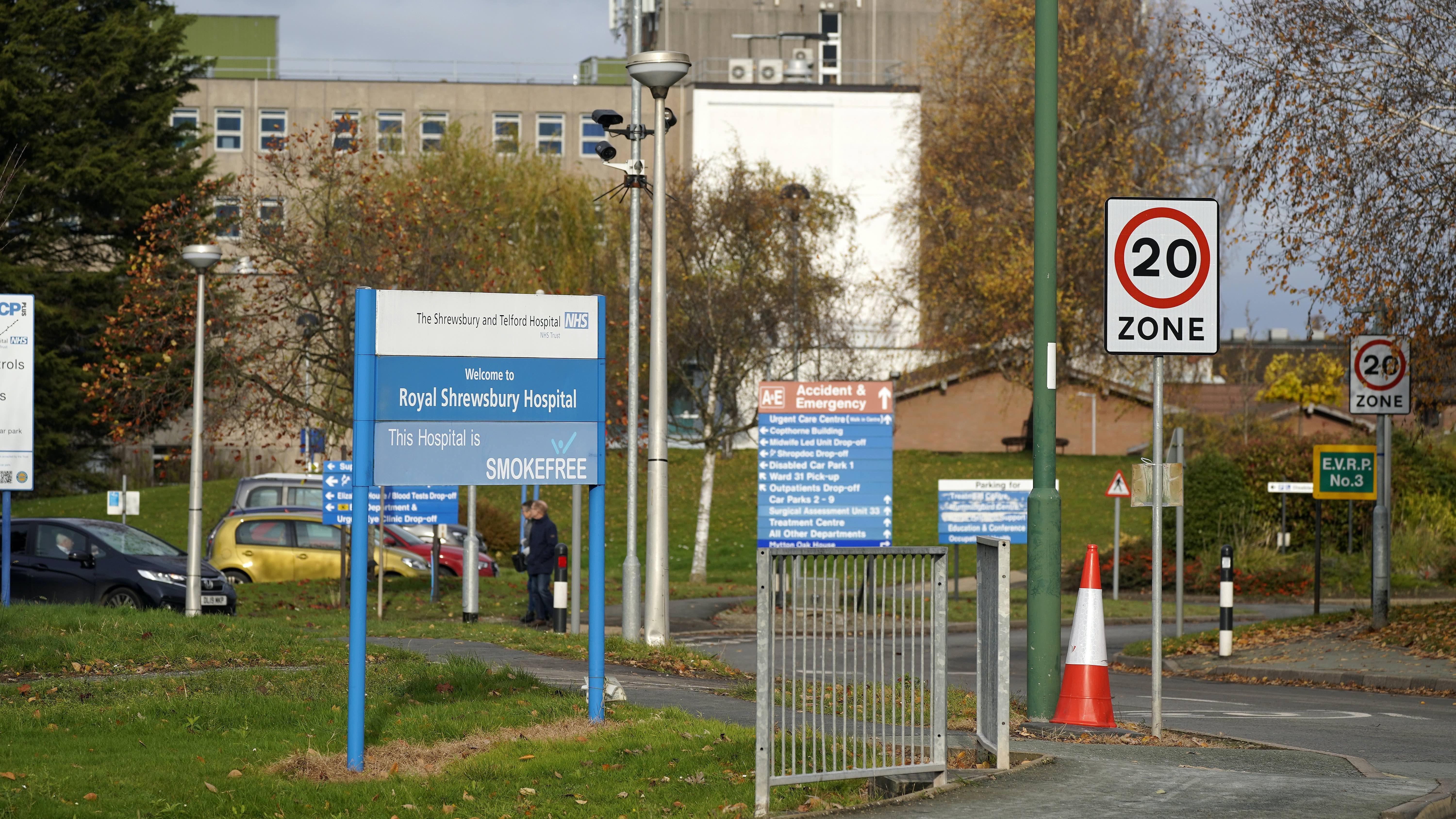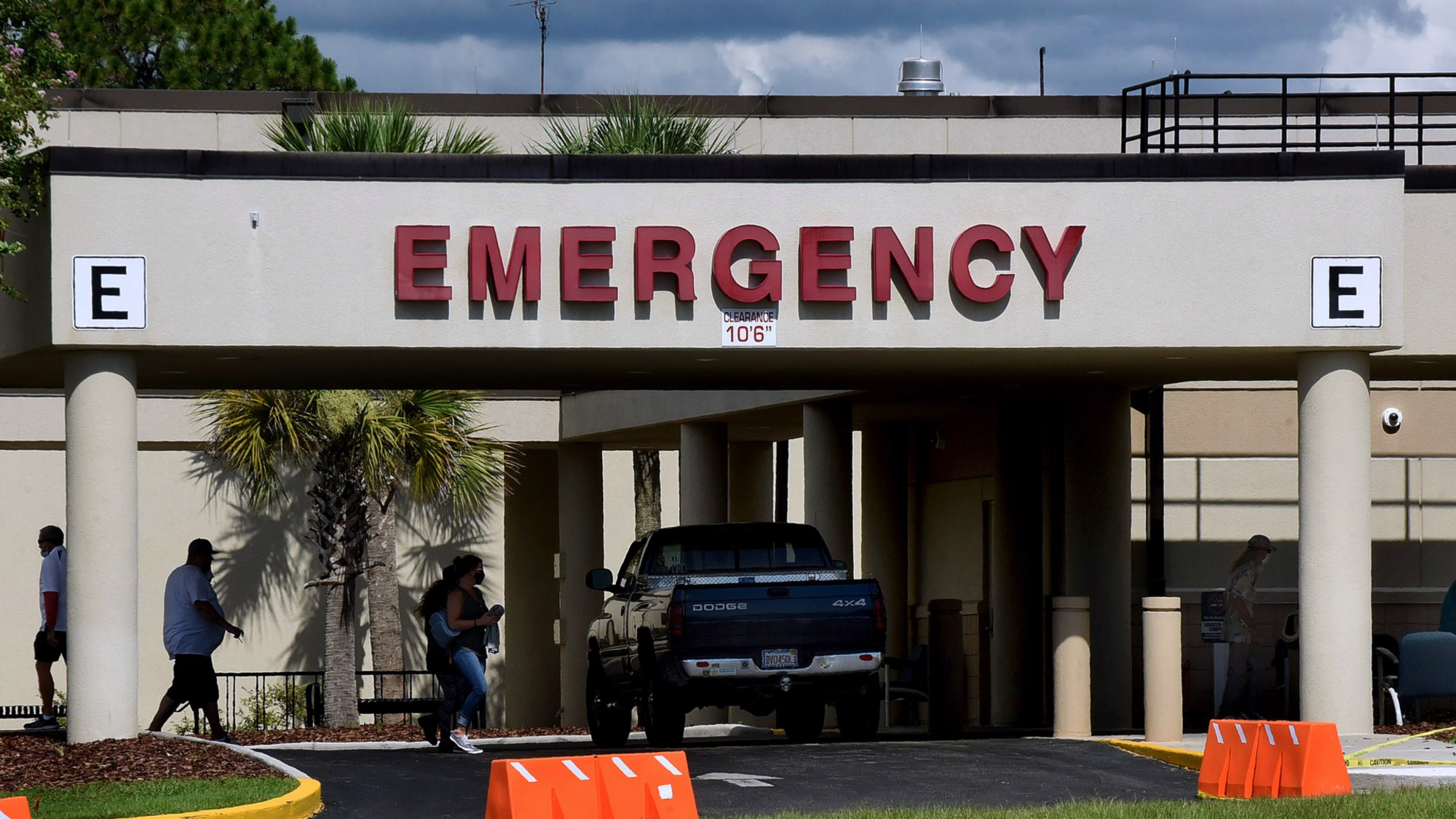Why everybody’s talking about Shrewsbury and Telford NHS Hospital Trust
The health service provider may face criminal charges over maternity ‘scandal’

A free daily email with the biggest news stories of the day – and the best features from TheWeek.com
You are now subscribed
Your newsletter sign-up was successful
Police have launched an investigation into a hospital trust where at least 42 babies and three mothers may have died unnecessarily in what has been described as the worst maternity scandal in NHS history.
West Mercia Police confirmed it was looking into Shrewsbury and Telford NHS Hospital Trust after an independent inquiry identified a total of almost 1,200 cases over a 40-year period that warrant investigation.
What happened at Shrewsbury and Telford NHS Trust?
The Week
Escape your echo chamber. Get the facts behind the news, plus analysis from multiple perspectives.

Sign up for The Week's Free Newsletters
From our morning news briefing to a weekly Good News Newsletter, get the best of The Week delivered directly to your inbox.
From our morning news briefing to a weekly Good News Newsletter, get the best of The Week delivered directly to your inbox.
An initial inquiry into failings in maternity care at the trust was ordered by the government in 2017 following a campaign led by two sets of parents: the Stanton-Davies and the Griffiths, who lost their newborn daughters in 2009 and 2016 respectively, the British Medical Journal reports.
The review looked into 23 cases, but hundreds more subsequently came to light.
An independent inquiry, commissioned by health watchdog NHS Improvement, is now examining 1,170 cases dating back at far as 1979 where babies died or suffered brain damage, allegedly as a result of failures in the trust’s maternity department, reports The Guardian.
An interim report prepared last year by midwife and lead reviewer Donna Ockenden that was leaked to The Independent described a “toxic culture” at the trust’s maternity unit. Investigators found that bereaved families were treated with “a distinct lack of kindness and respect”, and dead babies were referred to as “it”.
A free daily email with the biggest news stories of the day – and the best features from TheWeek.com
One family was not told that their child’s body had been brought back after a post-mortem examination, The Times reports. “This meant that the body was left to decompose and the family could not say a final goodbye,” according to the newspaper.
In April, Ockenden said she had written to 400 families about potential failures identified by the review. Of these cases, 333 involved either stillbirths, neonatal deaths or baby brain damage, “as well as a small number of maternal deaths”, says The Guardian.
–––––––––––––––––––––––––––––––For a round-up of the most important stories from around the world - and a concise, refreshing and balanced take on the week’s news agenda - try The Week magazine. Start your trial subscription today –––––––––––––––––––––––––––––––
What will the criminal investigation examine?
The details of some cases identified by the inquiry will be passed to police, including cases involving deaths of babies and mothers. Police have confirmed that they met Ockenden and officials from the Department of Health and Social Care and NHS Improvement on Tuesday.
The assistant chief constable of West Mercia Police, Geoff Wessell, said the criminal investigation would establish whether there was enough evidence to support a criminal case “against the trust or any individuals involved”.
“We have met with NHS Improvement, the Department of Health and the independent reviewer to discuss complaints made against Shrewsbury and Telford NHS Hospital Trust in relation to maternity services and provision. The independent review is ongoing,” Wessell said in a statement.
Inquiry lead Ockenden has written to families to reassure them that her review will not be hampered by the police investigation and “that families’ voices continue to be heard”.
“We will be in continued discussions with West Mercia Police with a view to identifying cases that may be relevant to the police investigation,” she said.
Police have urged anyone with information about the maternity scandal to contact them, regardless of whether they have been involved in Ockenden’s review.
Louise Barnett, chief executive at Shrewsbury and Telford NHS Hospital Trust, said the health care provider would cooperate fully with the investigation.
-
 The ‘ravenous’ demand for Cornish minerals
The ‘ravenous’ demand for Cornish mineralsUnder the Radar Growing need for critical minerals to power tech has intensified ‘appetite’ for lithium, which could be a ‘huge boon’ for local economy
-
 Why are election experts taking Trump’s midterm threats seriously?
Why are election experts taking Trump’s midterm threats seriously?IN THE SPOTLIGHT As the president muses about polling place deployments and a centralized electoral system aimed at one-party control, lawmakers are taking this administration at its word
-
 ‘Restaurateurs have become millionaires’
‘Restaurateurs have become millionaires’Instant Opinion Opinion, comment and editorials of the day
-
 A real head scratcher: how scabies returned to the UK
A real head scratcher: how scabies returned to the UKThe Explainer The ‘Victorian-era’ condition is on the rise in the UK, and experts aren’t sure why
-
 How dangerous is the ‘K’ strain super-flu?
How dangerous is the ‘K’ strain super-flu?The Explainer Surge in cases of new variant H3N2 flu in UK and around the world
-
 The ‘menopause gold rush’
The ‘menopause gold rush’Under the Radar Women vulnerable to misinformation and marketing of ‘unregulated’ products
-
 Private equity firms might be causing more deaths in hospital ERs
Private equity firms might be causing more deaths in hospital ERsThe Explainer Deaths in ERs purchased by private equity firms rose 13%
-
 How the care industry came to rely on migrant workers
How the care industry came to rely on migrant workersThe Explainer Government crackdown on recruiting workers abroad risks deepening care sector crisis, industry leaders warn
-
 Could medics' misgivings spell the end of the assisted dying bill?
Could medics' misgivings spell the end of the assisted dying bill?Today's Big Question The Royal College of Psychiatrists has identified 'serious concerns' with the landmark bill – and MPs are taking notice
-
 Washwood Heath: Birmingham's pioneering neighbourhood health service
Washwood Heath: Birmingham's pioneering neighbourhood health serviceIn the Spotlight NHS England chair says there is a 'really good argument this is the model for the future'
-
 The UK's first legal drug consumption room
The UK's first legal drug consumption roomThe Explainer 'Potentially transformative moment in UK drugs policy' as The Thistle opens in Glasgow